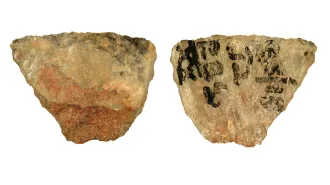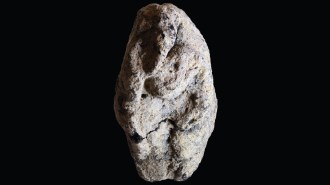Ancient tunnel keeps biblical date
The Siloam Tunnel, a shaft that carried water into ancient Jerusalem from a nearby spring, was probably constructed around 700 B.C., a new radiocarbon-dating study finds. That finding bolsters the credibility of Old Testament verses that credit the tunnel’s construction to King Hezekiah, who ruled in the area from 727 B.C. to 698 B.C.
Some scholars had accepted the biblical account, whereas others had argued that inscriptions at the Siloam Tunnel’s outlet indicated an excavation date between 200 B.C. and 100 B.C.
Into this dispute stepped a team led by geologist Amos Frumkin of the Hebrew University of Jerusalem. The scientists’ confirmation of the biblical scenario for the tunnel rests on radiocarbon dating of bits of wood and plants found in plaster that the original builders had used to coat the tunnel. Frumkin’s group also measured uranium and thorium isotopes in stalactites that had formed in the tunnel shortly after its construction, which indicate that the passage was built before 300 B.C., the scientists report in the Sept. 11 Nature.
****************
If you have a comment on this article that you would like considered for publication in Science News, send it to editors@sciencenews.org. Please include your name and location.






